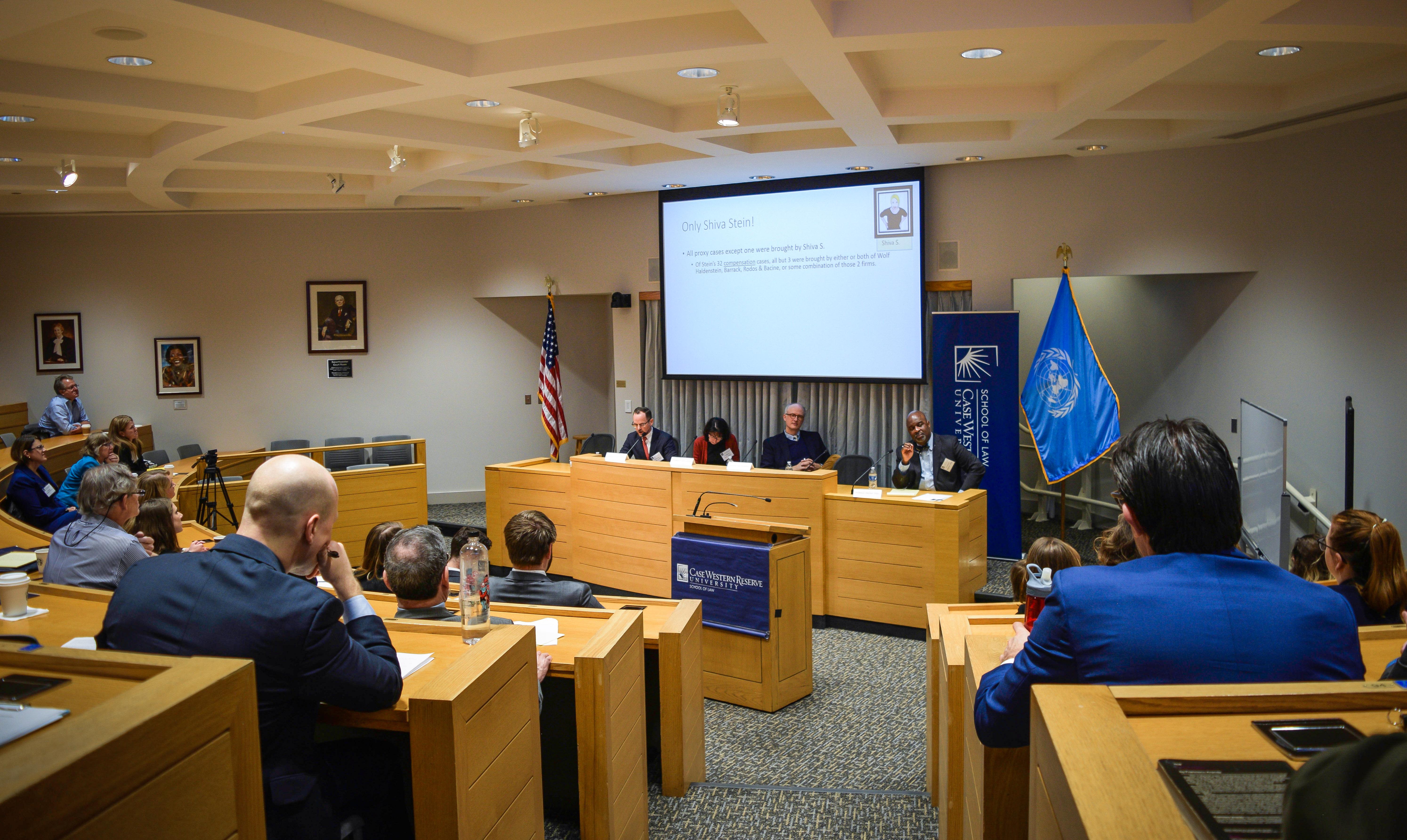(Canceled) Human Right to Science: A Panel Discussion
Tuesday, March 31st, 2020 12:00 PM - 1:00 PM
Event is free
Event Description
Due to COVID-19, the university will not hold campus events for the near future. This lecture has been canceled.
This panel will present a cutting-edge discussion of the human right to science. The human right to science is articulated in the Universal Declaration of Human Rights and the International Covenant on Economic, Social and Cultural Rights (CESCR). What does this human right mean? What are its implications? How will the human right to science work?
The General Comment, which the CESCR Committee is expected to adopt this year, will elaborate on this right that will reduce discrimination in learning and doing science, promote access to science, prevent harm from science, and promote international cooperation among scientists. This General Comment may fundamentally change how individuals learn about science, pursue scientific educations, and how scientists do research and disseminate their findings.
Joining this panel is Professor Mikel Mancisidor, Vice Chair of the UN Committee on Economic, Social and Cultural Rights, and author of the draft General Comment on the human right to science, Professor Max Mehlman of the CWRU Law School, Professor Brian Ray of the Cleveland-Marshall Law School, Dr. Heather Burton of the CWRU IDEAL-N program, and Professor A. Bolu Ajiboye of CWRU Biomedical Engineering.
Speaker Information
Bolu Ajiboye, PhD is the Elmer Lincoln Lindseth Associate Professor of Biomedical Engineering at Case Western Reserve University, and Principal Investigator at the Department of Veterans Affairs Rehabilitation Research and Development Service “Center for Functional Electrical Stimulation”. He received his dual BS degree in Biomedical and Electrical Engineering, as well as a minor in Computer Science, from Duke University. He then received his Masters and Doctoral degrees from Northwestern University. Dr. Ajiboye directs the Laboratory for Intelligent Machine-Brain Systems (LIMBS). LIMBS focuses on understanding brain function in people with neurological disorders and injuries, such as spinal cord injury, and developing technology to mitigate the effects of these neurological afflictions. Specifically, Dr. Ajiboye and colleagues develop implantable brain recording and muscle stimulating technology to allow persons with paralysis to regain natural control of movements of their arms and hands to perform normal everyday activities. His work has been widely featured in numerous outlets, including CNN, Time Magazine, National Public Radio, BBC, The Economist, MIT Technology Review, and many others.
Maxwell J. Mehlman is Distinguished University Professor, Arthur E. Petersilge Professor of Law, and Director of the Law-Medicine Center at the Case Western Reserve University School of Law, and Professor of Biomedical Ethics, Case Western Reserve University School of Medicine. He received his J.D. from Yale Law School in 1975, and holds bachelor’s degrees from Reed College and Oxford University, which he attended as a Rhodes Scholar. Prior to joining CWRU, Professor Mehlman practiced law with Arnold & Porter in Washington, D.C. In addition to numerous articles, he is the co-author of Access to the Genome: The Challenge to Equality; co-editor, with Tom Murray, of the Encyclopedia of Ethical, Legal and Policy Issues in Biotechnology; co-author of Genetics: Ethics, Law and Policy, the first casebook on genetics and law, now in its fifth edition; and author of Wondergenes: Genetic Enhancement and the Future of Society (Indiana University Press 2003), The Price of Perfection: Individualism and Society in the Era of Biomedical Enhancement (Johns Hopkins University Press 2009), and Transhumanist Dreams and Dystopian Nightmares: The Promise and Peril of Genetic Engineering (Johns Hopkins University Press 2012).
Heather E. Burton, PhD, a graduate of The Ohio State University with a Bachelor of Arts Degree in Journalism and African-American Studies with a minor in Theater, a Masters of Social Work, University of Akron, a Masters of Public Administration and a Doctor of Philosophy in Urban Studies and Public Affairs both from Cleveland State University.
Dr. Burton is employed with Case Western Reserve University, specializing in gender and racial equity and serves as a facilitator to implement diversity and inclusion and encourage individual and systemic change.
She is faculty in African and African American Studies and Social work. Dr. Burton received the 2019 Staff Diversity Award, 2019 Qgrad Outstanding Faculty and Staff Mentor Award and Co-Chaired, Ellipsis Institute for Women of Color in the Academy, CWRU (2018, 2019, 2020). She received the 2019 Mather Spotlight & Women of Achievement and 2020 YWCA Women of Achievement. She is listed in the Who’s Who of Black Cleveland and received the Phenomenal Award from the Phenomenal Foundation.
Brian Ray is an expert in cybersecurity and data privacy, especially in connection with smart cities and surveillance technology. His scholarship also focuses on comparative constitutional law, and he has published extensively on democratic theory, judicial review, and the role of courts in effecting social change, including Engaging with Social Rights: Procedure, Participation and Politics in South Africa’s Second Wave (Cambridge Univ. Press). He co-founded and directs the Center for Cybersecurity and Privacy Protection at Cleveland-Marshall and serves on the CyberOhio Advisory Board, Ohio Attorney General Facial Recognition Task Force and the Ohio Law Enforcement Gateway Advisory Board. SC Magazine named him one of three Outstanding Cybersecurity Educators in the 2017 Reboot Leadership Awards.
Professor Mikel Mancisidor has directed the Basque region’s UNESCO office and is a law professor who teaches courses for the University of Bilbao and American University. He is the Vice Chair of the UN Committee on Economic, Social and Cultural Rights.
Event Location
CWRU Law Moot Courtroom (A59)


